Et knippe artister kom på plass, nå er lineup komplett.
Tons Of Rock 2026
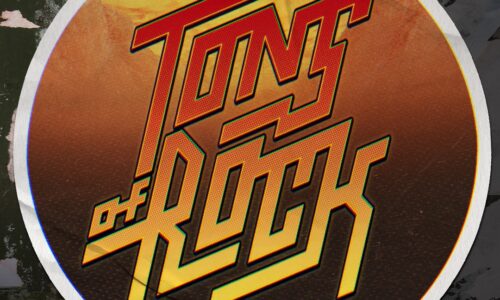
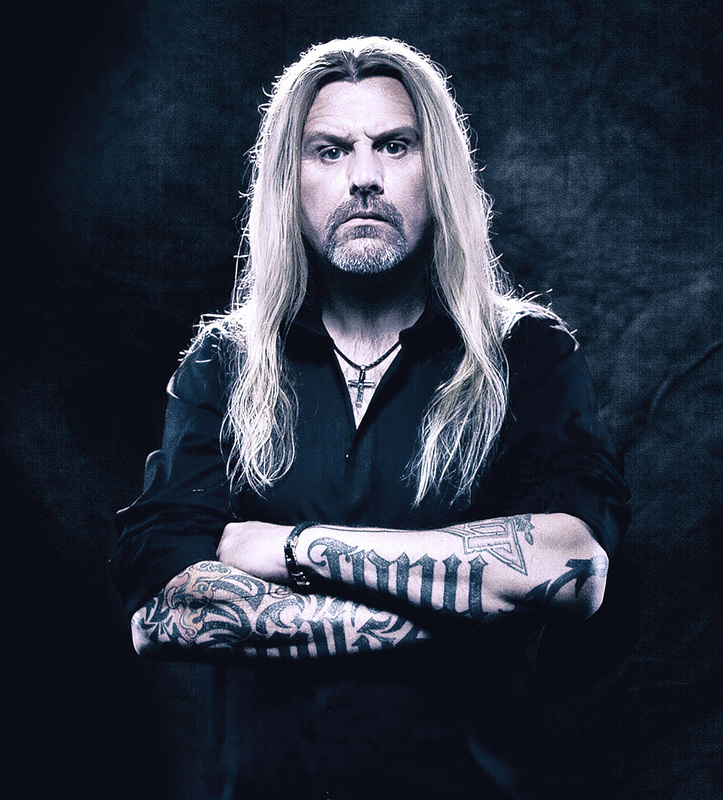
Fotograf: ©Tom-Egil Jensen
Nylig slapp den tidligere Shy- og Tnt-vokalisten soloalbum, som åpenbarte seg som ganske så bra etter noen runder. Variasjon og melodier var stikkord, og Tony viste med dette slippet at han makter å stå på egne bein. Norgesvennen har vært aktiv i å bygge seg et navn etter bruddet med Tnt, og vi begynner å se konturene av en etablert artist, og det er basert på dette jeg kontaktet herren for et intervju. Men, naturligvis vanker det litt historikk og graving i cv-en ;).
First, welcome to Heavymetal.no :). We have met, and I guess I did promise doing a feature on you back then, but somehow it never materialized. Sorry. How’s life?
«Hi Yngve!! Well, we all tend to diversify and find ourselves doing different things, so I know what you mean. I’m fine, currently looking after all the press for the new album and planning some video shoots.»
I have followed you from the early days, Shy, but lost track around 89, after the release of ‘Misspent Youth’. Then you appeared in Tnt back in 2006, and I was reminded what an excellent vocalist you are. These are the two bands I think of when your name pops up, does this bother you? Do you feel your other achievements should shine AS bright as Shy and Tnt?
«Probably not, in retrospect and certainly not from a media point of view anyway. I was enjoying a love affair with my band Siam in the 90’s and we were based at a studio in Birmingham which managed us, so the band very much revolved around the Midlands of the UK and never went abroad, so it wasn’t really granted international press. But nevertheless, we were doing what made us happy for five years and making good music. I would very much have liked the band to continue, but the Grunge market swallowed us whole in ’96. This new album was intended to be a final chapter in Siam’s story, but it was impossible to pull the people together, so it ended up as very much a solo affair. But I am glad to say, that much of the writing was exercised with an eye toward Siam and with their production values in mind. I have no compunction in categorising the record alongside the Siam albums; they go together very well.»
On the Shy debut I guess you was around 20? What did you do prior to joining Shy?
«I really kicked into the rock scene around 1980 when I was 18 years old. I’d started working with a twin lead outfit in Birmingham called Overdrive, they had a black bass player who was very cool and were reminiscent of Lizzy, it wasn’t much of a surprise when Phil Lynott turned out to be friends with the bassist, Tony Forsythe. Overdrive had various guitar players, namely Nik Lloyd (Uli Jon Roth). We trudged around the Midlands for eighteen months or so until it all fell over. During that time we recorded in Portland Place Studios with the great Chas Chandler from the Animals. Around ’81/’82, I sang for Nik Lloyd’s other two bands, Orion and Enigma. We did the same kind of thing for another eighteen months, club gigs, biker clubs, recording demos, that kind of thing, but apart from getting into a lot of trouble, nothing much happened. I started recording demos for other bands as a vocalist with not much else going on and I carried on with that until Trojan appeared as a local outfit in need of a vocalist.»
I have never figured out if you was a part of Trojan, the proceedor to Shy…?
«Trojan were one of several bands that I was asked to record session recordings for in small studios around Birmingham. The demos gained interest and when an offer appeared on the table, they changed their name to Shy and I joined at pretty much the same time. Although I did perform one concert in Birmingham with Trojan in 1982, which gave me my first ever press review in the Sounds newspaper in London. It was the one and only time I ever performed Priest’s ‘Beyond The Realms of Death‘.»
From one track on the Metal Warriors sampler, Shy released, ‘Tonight’, you got lucky and secured a deal with Ebony Records and your debut, ‘Once Bitten, Twice…’ was released. What memories do you have from those days? Was it just happy days and golden roads? Guess not, but again, people usually remembers the good stuff down the road 😉
«We would take our holidays from our day job, hire a van, head up north to Hull, where Ebony Records was situated, and I think it felt like being on holiday. We recorded all day, and partied all night. We had a lot of fun and everything was circled with hope. Right down to the smell of the studio and the big mixing desks with tape machines rolling around in the background, it was very exciting, although it seemed very much a chosen road for all of us, like some predestination. It went without saying. We were already arguing about the mix quality before we had even started, so it was a place I think we were all supposed to be. We were a a bit late really, at 20 years of age, but things happened very quickly after that.»
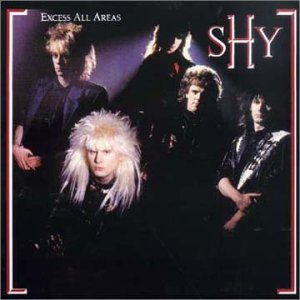
With Shy you established a reputation as a vocalist and as a part of the happening metal- hardrock scene. How was to, after a good run, to see the band dumped by the label and pretty much erased from the map?
«We were victims of an accountancy debit sheet clean up in ’87, after a five year increase in popularity. We had become a consistent live band, we were fit and sounding good, but along with most of the roster of RCA Records, we were only two years into the contract of five, when the accountants cleaned up the books and dropped the majority of the artists. We had just got off the boat back from Europe with Gary Moore and stepped onto the stage of Reading Festival, supporting Alice Cooper back in the UK and RCA announced their spring clean. We were pretty shocked. It wasn’t that long after, that BMG took it all. RCA didn’t market the band very well and made some crass mistakes in their professional decision making, on various levels. It took a lot to recover from that. It took us a whole year to pick up the MCA contract in London and roll with it over to Los Angeles and start again, under the name Shy England (because of legal conflicts in the States). To me it seemed a ridiculous suffix, but the logo looked ok and the Americans didn’t seem to care about anything, as long as we were English.»
I know the band and the release lived on, but right there, right then, Shy was getting little if any support from the labels.
We spent a couple of million dollars on two albums, a few videos and a lot of touring between ’84 and ’90, so to be honest, I think we had quite a lot of support during those years. The money was always there, but the lack of professionals were a very different issue. I left the group after the American touring finished and MCA picked me up as a solo artist, after that Shy declined and worked with smaller production companies, but carried on touring in Europe and the States through the 90’s. I think the friction grew within the band after I’d left and ultimately it faded to releasing old demos in the back end of the 90’s.»
Ten years later you suddenly fired on all cylinders, and since then you have been active as a musician, both in Tnt, as a solo artist and as a guest on several projects. First off, what happened in the years between Shy’s ‘Misspent Youth’ and the re appearance?
«After I left Shy in ’90, I approached my first solo album, primarily with guitarist Bob Maxim and a production contract I had with Atlantic’s keyboard player Simon Jewell-Harrison. I worked non stop for about two years between 90-92 writing and recording in Manchester and south of Birmingham. I recorded masters at Revolution Studios with Clapton/The Who engineer Andy MacPherson and various members of Sad Cafe and 10CC. I shelved the album for a while when Siam was formed in ’92 and focused on the band throughout up until ’96.
When it folded, I found myself back as a session vocalist and I fronted a Rush tribute band (YYZ) for a year until I couldn’t stand to sing other peoples material anymore. I never got any satisfaction or spiritual release from it. I yearned to sing my own songs again and once again Shy approached me to write and record some more albums in 2000. I wrote Unfinished Business and Sunset and Vine with Steve Harris and we recorded, oddly enough, back in Coventry at Siam’s bass players’ studio, Sable Rose. (It was during a delay in the recording here, that my solo album from ten years ago, was released to bridge the gap of the Shy product being released) Although the records were received well, the intention to perform live had pretty much dwindled in the band and everyone was day jobbing. We did play some shows, but they were mostly smalltime and by 2006 we had hit rock bottom. I was contacted by Andy Scott from The Sweet, as they were looking for a new frontman. I had always liked the band when I was a lot younger, but I wasn’t really a bass playing frontman and that’s what he was looking for. After touring all over Denmark we had shared out the bass and the shows were settling down, after some raw performances on my part, but the gaps were huge between us and we had to go our separate ways. Inside a month, it was May, ’06 and TNT contacted me, to see if I was interested in fronting the band in Scandinavia.»
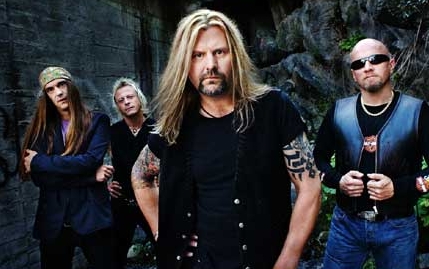
Tnt did surprise me when they said they had been in Germany (this is correct?) checking out Tony Mills, did it come as a surprise to you as well? Or did you know they were tracking you down?
«As it happened, I had one show left to do with Shy and that was in Berlin. TNT suggested coming to see us and see if we hit it off down there, so we agreed to meet at the hotel after the concert with Shy. It wasn’t a late show, but the sound was awful and I could see the band at the back of the venue. One by one, they left and I understood that the impression must not have been that great. But nevertheless, after the show I hooked up with them in their hotel room and inside an hour, we were having a photo shoot in a parking lot.»
The years in Tnt resulted in three full length albums, the Hidden Treasure Ep and your part in the anniversary gig/release. Looking back at this period, what are the most precious moment(s)? I guess stuff happened and some clouds may appear these days, but just looking back, 100% pure, remembering what the band and this opportunity meant for you?
«If big bands is what is important to you, then TNT was the biggest band I have sung for. The most popular, with the largest audience and the most comprehensive TV and media promotion that I have been involved in. It started off tough, with a lot of hate mail from the fans, because they wanted their other Tony back, which was understandable; the way I looked at it, I was a singer coming to do a singers work. It was never my aim to steal anyone else’s glory. I just thought to myself, These people need to calm down a bit, and some of the press, just thanked me for making the vehicle of TNT and Ronni Le Tekro available for them to see shows again. I totally understood that as well. I certainly wasn’t insulted by that.
But it didn’t seem to matter whether I felt the need to pacify the old fans or not, I was never going to win them over and still, I understood. I soldiered on for a while, through the passing of Dag Stokke, which was one of the highlights of my career, to have worked with such a talented man and then a year of madness ensued with the second album. If my eyes had not been opened wide enough during the first year or two with the band, they were probably hanging out of my head by the time we finished the second album. I considered the first album (A New Territory) to be raw and unrefined, unpredictable and intoxicated. But the second album (Atlantis) was refined, in a twisted, narcotic and equally unpredictable manner. I faced challenges that I had never foreseen, amidst the ghosts in Tekro’s mansion, that kept me awake many nights. If it wasn’t them, it was the fucking UFO’s that hovered outside the studio while I was trying to do vocal takes as he calmly sat there announcing,We have visitors, Mills!!
Madness ensued with dance lessons at midnight before 0600 shows on breakfast TV dancing the Tango and various other live capers that I never saw coming. But I was slow on the uptake and the TNT machine always seemed to move ahead of me, either that, or the communication was suitably slow, so that it suited them, but no one else. I think it was the latter. I was still living in the UK then and I would fly back to Birmingham and find the phone ringing, Can you come back, we have another show tomorrow. In the end, I flatlined.»
You are a musician as well as a vocalist, with a strong desire to make music. In what extent are you dependent on other musicians to get your stuff recorded?
«Yes, I’m not much of a musician, really. I can pick up a guitar and explain to a proper guitar player where I’m coming from or what I have in my head. I took up bass guitar and read music when I was 16. But I was a better singer than a bassist, so I took to playing bass and doing backing vocals. But I never really mastered it that well. Guitar came along, because my mother used to complain about the low frequencies in the bedroom and constantly threatened to send me for proper guitar lessons. But as singing always came natural to me, I was always very impatient with the instruments. I had sax lessons for a long time, but never developed the strong enough lip and face muscles to pull that off either. It was always back to the microphone. Consequently, I was always dependent on other musicians to record whatever I had in my head. Most of the musicians I worked with, knew their chords but weren’t great performers, so I kind of found another niche in production as well, over the years.»
And was this ever a problem in Shy or Tnt? Getting your songs and ideas out there, and made into finished songs?
«With Shy, Steve Harris wrote all the music anyway and it was always presented to me as a composition in need of lyrics, so I was really only dealing poetry with Shy for the twelve years that we actually composed together.
With TNT, Ronni was the main writer and the situation wasn’t that different; sometimes, he would have a hook for his chorus/refrain, but no other lyrical ideas, so I filled in a lot of blank spaces. He was a fine guitarist and chord progressionist, so some of his compositions were lovely to listen to.»
I haven’t heard TOO much on the last two albums you did with Tnt, sorry, but I really like the first one you fronted; ‘The New Territory’. You have covered ‘Atlantis’, how do you view the last album yourself? ‘A Farewell To Arms’?
«Ronni Le Tekro is an institution in this country. Whether you like him, don’t like him, or are indifferent, he is an iconic Bohemian that shakes the faith in people around him to uncertainty, in most cases. He’s also his own best salesman. Give him a microphone and he will create the most bizarre situations that can’t fail to leave you in tears of laughter. His silences are just as loud. Second guessing the man, is a futile endeavour. After a couple of albums of listening to what he had to say, I think the public were exhausted by how he had vented his spleen for three years, that the shouts in the gallery for a proper metal album, finally sank in and I heard him say that it was time to give the people what they wanted.
I didn’t think that was a big deal, but I was quite relieved that we wouldn’t be ejaculating any more Beatles influences or songs that were purely founded on his sense of humour. I can only say, that I am glad we didn’t record everything in his head, or we could have been sectioned and locked up in a mental asylum for good. So, he started sending me tracks that were really good, solid and right down the middle of where I had come from for years. When I got back to Toten, I sat in the studio and he knocked my head clean off with all his new recordings. He had worked hard and it was all there. A Farewell To Arms happened very quickly after that and writing the lyrics that he hadn’t managed himself, wasn’t difficult at all. Ronni is very much a writer that completes his own ideas, so I was aware of that. It was very rare that I was ever given a composition with no lyrics whatsoever, he always had a starting idea, or the lyrics were already written. Sure enough, the album was received as a return back to the roots of the band and I kind of agreed with that as much as was possible, even if I wasn’t the singer that the public wanted. We hit the road, to great success with the album and that’s the way it stayed for the next three years; although it has to be clear, that the majority of the songs in the live show, were from the 80’s.»
Cutting the cord, on your own, solo, was it difficult to make the final decision to leave Tnt? Or was it a needed and a positive move?
«No, it wasn’t difficult. The tension was growing way back and I announced I would leave the band at the beginning of 2012. We had already started banging our heads together a year before that. So it was only going one way. I sensed the vibes of a proper reunion that would take the band back to Japan and I was kind of pleased for them. The sales weren’t high enough to drag the band to Tokyo, but the original line up would be and I saw that long before it happened. I was ready to leave and re-announced it at the beginning of 2013 but they were in need of more performances, but with no replacement vocalist, so I covered and I covered. I wasn’t bitter, I was just ready to go. I wanted to get on with more constructive things and write fresh songs and just be creative, without a band around me, arguing about what was wrong all the time. I don’t bear Tekro any ill feeling. He knows that. He can be hard to work with, but you kinda get good results in the end. I think he will always be a famous guitar player, mainly because he’s so out of the ordinary and people need that.»
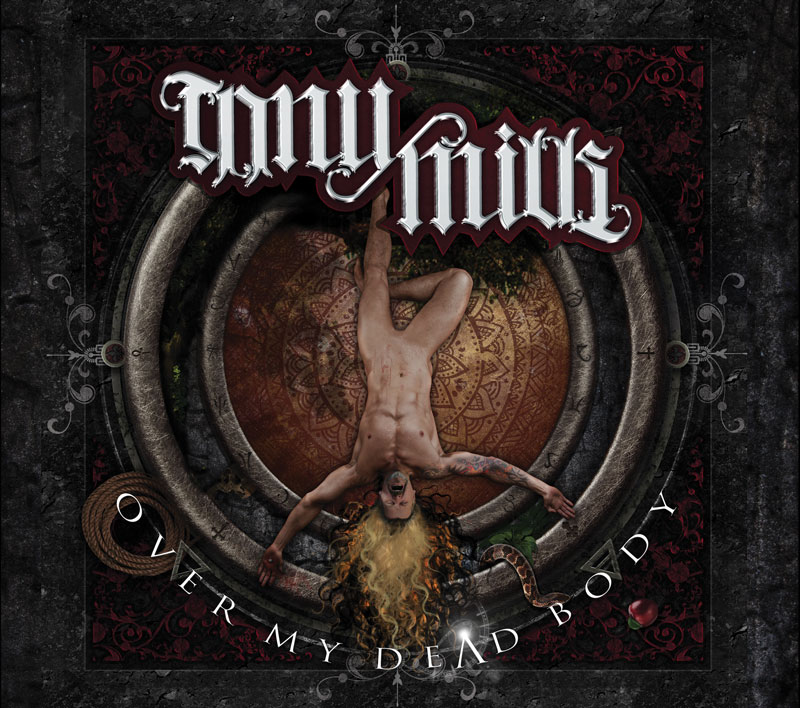
‘Over My Dead Body’, your new album, it sounds fresh, and it did surprise me. I didn’t expect it to sound the way it does. How did you approach the album? Did you have a plan, a goal? Or did it just fall into place naturally?
«I really started writing down my feelings first. I’m not a very good writer of singular, commercial songs. When I write something, it really has to be important to me, to be able to do it with any conviction, so after the ill health, I had a lot of extraneous emotions to divulge and an album was the best way to do it for myself, as a writer.
A perfect vehicle to get the monkey off my back once and for all.»
Les anmeldelsen min av skiva HER.
Whats the story behind the album? The title? I got some info on the topic, including your heart condition, you moving to Norway, depression…that’s a pretty strong bouquet as a lyrical fundament.
«I’m pleased to say that I haven’t had to explain the concept to people, they’ve understood it without any guidance notes. I was getting pretty tired by 2010. With all the TNT commitments and living the wrong side of the North Sea, it was killing me. I felt it, but I took no notice. I felt the strangest feeling outside the airport one night; I had just parked my car and was walking to the airport when I just stopped and put my bag on the floor. I think I was in the middle of the Short Stay carpark at Birmingham. It was 03.30. I couldn’t understand the feeling, so I picked my bag up and checked in. I flew to Copenhagen, then Oslo, then Narvik. Played a festival and jumped the connection back to Oslo to get another flight to Trondheim for another show.
I was in Oslo, Gardemoen airport and I had just had a cool wash and went out to pick up my coat and bag as we were boarding for the flight back to Trondheim and I don’t remember anymore. I think I collapsed and collided on the edge of a table, because I had two black eyes. But I didn’t know I had died. There were no indicators. I must have hung around for three minutes, before they managed to bring me back to life. I woke to my own screams from the electric shock and then I passed out again for a long time. I guess they put me out at Gate 21 and flew me to Akershus brain scan unit, before taking me straight to Rikshospitalet for heart surgery.
My retrospective imagery of all of this, is really what is going on in the album. My firm resolve, to stay alive after the heart attack, especially when I didn’t want to come back, were feelings of great contrast to each other. I was angry at being disturbed from what was to be an endless rest, to realising what we actually have when we are alive and how much love I had for my little girl, Holly. It was a very difficult time. I had a lot of drugs administered to me after this, so it was difficult to keep a sane mind for a long time, with the loss of smell and taste for a year as well.
As I gained health again after a considerable time in the UK hospitals, I was formulating songs in my head that would come together in time. I didn’t feel like it was my time to go yet, and certainly not as a vocalist; I felt that I needed to cover a lot of bases yet as a singer, before I was finished, so I resolved myself to make the record, Over My Dead Body; it was really a shout at myself, not to give up, regardless of the adversity.»
Was it a hard album to make? Or was it some kind of cathartic experience, getting rid of everything, locking it within the album, trapping it and getting over it?
«I think more than anything, it felt like a slow album to make. It was never ending. It took me two years, to empty my head onto tape and for it to be understandable.
I wasn’t rolling in money, after leaving the band, so it was going to take some time. But I didn’t care. For me, it was important work, so it didn’t matter how long it took.
It changed direction a couple of times, where the focus shifted until it finally settled where it lies forever, now.»
I know Henning Ramset (one of my extreme metal heroes!) has been a valuable asset, what were his contributions?
«Henning has been invaluable. I really needed an up to date metal guitarist with a modern attitude to his instrument and his sound. He has all of that. And a lot more besides. He is a serious composition writer and a fine lead player as well. We talked about the ideas in my head and he wrote them down and played them. He is a smart dude. He converted my emotions into sound, perfectly.»
And Victor, former Tnt-bassist (Editors note: he parted way with Tnt back in December of 2012.), was he a natural choice?
I have always had a deep seated need for Victor, he helped the paramedics save my life at the airport on 28 August 2010 and I will never forget that. Bitter Suite on the album, tells that story.»
And I’m a curious dude; what is he up to these days?
«Well, that is for him to tell you of course, I believe he is fundamental in his wife’s career (Bente Smaavik) as a vocalist these days and I think he’s very happy in that.»
Andreas Negård is a well-known name, you did some vocals on an album of his back in 2012 – and you did some live work with him last fall. I guess you found a common ground, a kindred spirit?
«We have connected a couple of times, yes and after we settled our drum recording process, things went very smoothly. Andreas is very talented for such a young man and I have no doubt will have a colourful career ahead of him.»
Do you have any plans to bring this album on tour? Possibly with the musicians participating in the studio?
«I suppose that would be the natural supposition. But I don’t know about that. My first choice is video footage to give the album longevity.
I think a live production would be too big and too expensive to pull it off.»
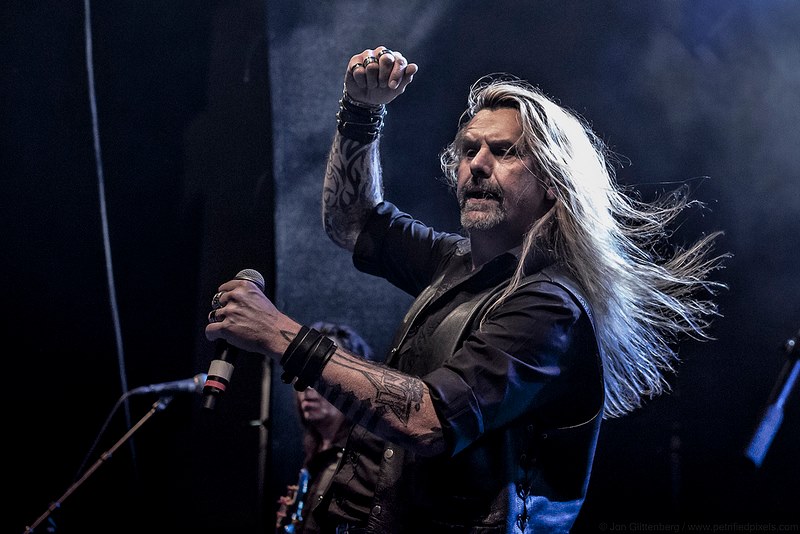
What are your musical heroes? What inspires you? You do have a classic metal voice, as well as hard rock/aor, are your inspirations located within these frames?
«Hmmm…… well they are changing. I kinda kicked off with Bowie as a writer and Iggy as a performer, then Halford as an extremist, Steve Perry for his clarity, Lou Gramm for his grain, Geoff Tate for the snake in his voice, Joe Lynn Turner for perfection, Alanis Morrisette for her lyrical honesty and poetry, I guess its a list that’s ever growing. I’m a big fan of Seal, too, for bridging rock n groove. We used to have the same publisher in London in the mid 90’s and they used to play me his new material at the offices. When I heard that, I used to feel so outdated and behind the times. But his voice was the key, it is timeless. But by the same token, I’m just as much a fan of Cat Stevens, for the rustic folk in his persona; undeniable qualities, all.»
I’m NOT a tabloid writer, but I am curious to know if Tnt approached you when Harnell left recently ☺ If not, would you have considered rejoining?
«No, they have not. Do you think I would honestly put myself and moreover, the TNT fans through all of that again? I’m sure they wouldn’t want that.
It’s probably something I disagree with Tekro about. Tony Harnell was the singer that was there when the band blossomed and became famous. He might not have been the original singer, but he is the singer that the public came to know and love throughout their most famous periods in the public eye. So he is quite what they have come to understand as the band as a band.
I will certainly not be joining any other bands in the Autumn of their career. That machine gun fire gets tiresome. But I probably will join another band. Or maybe put one together. And maybe start all over again. Who knows. That’s rock n roll.»
Tony Mills@Facebook
I am so thankful for you taking the time to answer my questions, hopefully you had to dig some to find the answers, and hopefully the readers learned something :). Any final words?
«After the colossal job, that making this album has been, (I expected no less) my honest focus is to promote it to the extent that seems sensible. Over and above that, I intend carry on writing the Over My Dead Body autobiography, that I started a few years ago. I haven’t picked it up for two years during the writing of this record, so I have a lot of catching up to do.
Being firmly entrenched in Oslo these days, I hope that a lot of what I have said will connect with the Norwegian rock fans; they are a higher market, giving a greater reception to the rock musician and providing greater opportunities for the muzos than many other countries can sport for theirs. It’s a great country for rock music, be it, AOR, mainstream rock or that stuff down the other end with the Dimmu Borgir guys. I think the point is, the people here, like to plug it in and turn it up. And they are appreciated. That’s good for the future of loud music.»